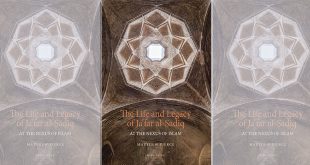At a gathering on Friday to mark one week since the mosque attacks in Christchurch, women of all faiths were seen wearing headscarves similar to the traditional hijab worn by Muslim women to show their support for the victims.
One week ago a gunman made his way into two mosques in Christchurch, New Zealand, killing 50 people. On Friday, women across the country are donning a headscarf similar to a traditional hijab worn by Muslim women to show their support for the victims and the religion.
Wearing a hijab is an Islamic tradition that many Muslim women decide to practice. In most cultures it makes Muslim women more recognizable and serves as a sign of identity. Similar to clothing worn by nuns and Orthodox Jewish women, a hijab symbolizes Islamic women’s devotion to God and commitment to their religion.
For non-Muslim women, wearing a headscarf to remember fallen fellow residents symbolizes love, strength and unity in a dark hour. Several New Zealand women spoke to CNN about why they decided to take part in the movement.
‘They are our family’
Izzy Ford, 45: “We wanted to show our children that just because we may not belong to the same religions, or we may look different, we are all equal. I know days, weeks, months will go by and we will remove our scarves and be back to our lives, and for our Muslim community they will continue, but for this moment in time we want to show them we are them, we love them, and they are our family.”
‘I don’t think anyone should be afraid’
Mal Turner, 28: “I’ve heard of Muslim women who are scared to go out wearing their hijab after the shooting and I don’t think anyone should be afraid to be themselves or practice their culture or beliefs in New Zealand.”
Tarusha Naidoo, 41: “Headscarves worn today for me, represents freedom and harmony. Freedom of speech, the right to be who you are, the right to live the way you do and the right to choose your religion without fear.”
Campaign faces some backlash
Not everyone is on board with the movement. The “headscarf for harmony” campaign is facing backlash on social media from people who consider the hijab to be a sign of female oppression. Many opposers think non-Muslims should show their solidarity by expressing their sympathy and having a moment of silence. While others asked “Why Muslims don’t take off their hijabs to show support for victims of other religions?” (Muslim women can’t take off their hijabs in front of strange men, as it contradicts the practice of wearing it.)
One Muslim New Zealand man shared his positive opinion on the headscarf initiative, calling it “beautiful and not disrespectful.”
On Friday, many people also took part in a two-minute moment of silence to remember those lost during prayer last week.
source:msn
 Ijtihad Network Being Wise and Faithful Muslim in the Contemporary World
Ijtihad Network Being Wise and Faithful Muslim in the Contemporary World
